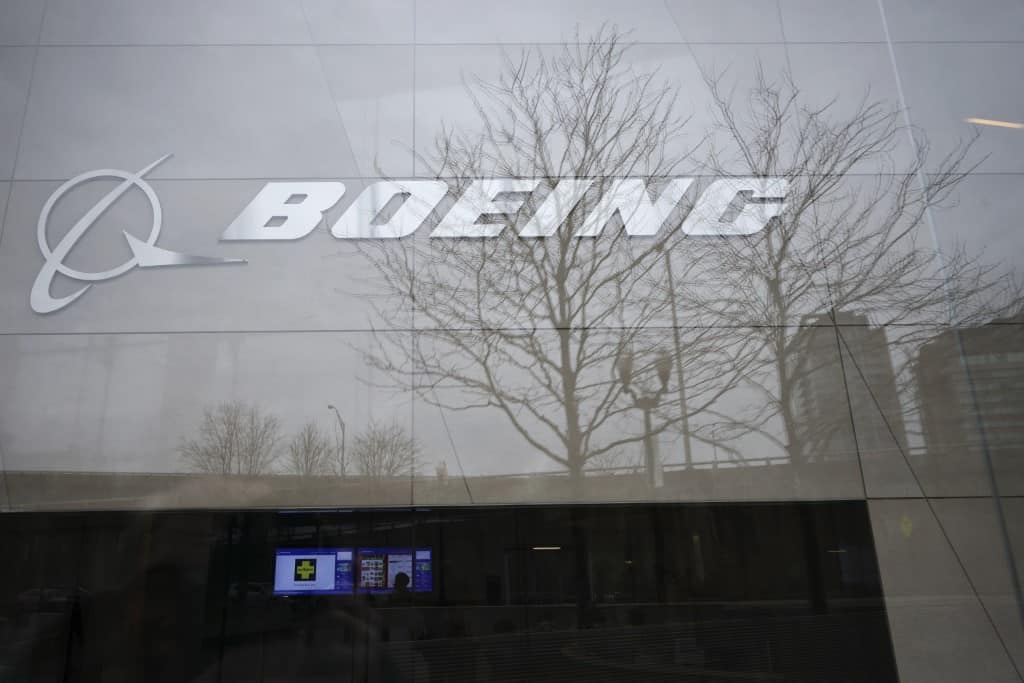New York, United States — Boeing’s CEO confirmed Wednesday that China had stopped accepting new aircraft due to the US-China trade war, as the company’s shares surged following a smaller than expected loss.
In a televised interview with CNBC, Boeing Chief Executive Kelly Ortberg said Chinese customers had “stopped taking delivery of aircraft due to the tariff environment,” adding that if the halt continued, the aviation giant would soon market the jets to other carriers.
President Trump’s trade conflicts with China and other countries loom as a question mark for Boeing, a major US exporter, despite Wednesday’s solid results.
Boeing had planned to send around 50 aircraft to China in 2025, said Ortberg, who told the network that the company wouldn’t “wait too long” to send the jets to other customers.
“I’m not going to let this derail the recovery of our company, so we’ll give the customers an opportunity if they want to take the airplanes,” Ortberg said. “That’s what we prefer to do. But if not, we’re gonna remarket those airplanes.”
The comments came as Trump and top administration officials have over the last day spoken more optimistically about a trade accord with China. But Treasury Secretary Scott Bessent told reporters Wednesday that Washington is “not yet” speaking with Beijing on tariffs.
Boeing’s engagement with the White House on trade has been “very dynamic,” Ortberg said on a conference call with analysts.
“I can’t predict” the course of trade talks, Ortberg said. “We do hear signs that indicate that there will be negotiated settlements… I just don’t know the timing.”
A priority is “to make sure we don’t see more countries in the in a similar boat as where we are with China,” Ortberg said.
Executives expect US tariffs on raw materials and components to cost Boeing less than $500 million annually. Under a US duty drawback program, Boeing can recover customs duties upon the importation of goods when planes are exported.
Smaller loss –
The aviation giant reported a loss of $123 million in the first quarter, smaller than the $343 million loss in the year-ago period. Revenues rose 18 percent to $19.5 billion.
In its earnings release, Boeing confirmed targets to raise commercial plane production as it bolsters its safety efforts following major incidents.
The company reaffirmed that production of its 737 MAX will hit 38 per month in 2025, while output of the 787 Dreamliner will climb to seven per month from five per month.
Boeing also said it still expects first delivery of the 777-9 in 2026.
Boeing also reported a cash burn of $2.3 billion, “much better” than the expected $3.7 billion hit to free cash flow, according to analysts at TD Cowen.
Boeing on Tuesday announced plans to sell portions of its digital aviation solutions business to software-focused investment firm Thoma Bravo for $10.55 billion as the aviation giant seeks to bolster its financial position.
Ortberg told analysts that he is considering some other divestments of assets “smaller” than those in the Thoma Bravo deal, which includes Jeppesen, an 81-year-old aviation navigation company.
Ortberg joined Boeing last summer following a leadership shakeup in the wake of a January 2024 Alaska Airlines flight that made an emergency landing after a panel blew out mid-flight.
Before that, there were deadly plane crashes on the 737 MAX in 2018 and 2019 in Indonesia and Ethiopia.
To win back the confidence of lawmakers and customers, Boeing has been implementing quality control enhancements under close scrutiny of federal regulators.
Ortberg described the turnaround as on track.
“Our company is moving in the right direction as we start to see improved operational performance across our businesses from our ongoing focus on safety and quality,” Ortberg said in a press release.
Shares of Boeing were up 5.5 percent shortly after midday.








